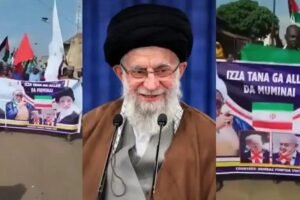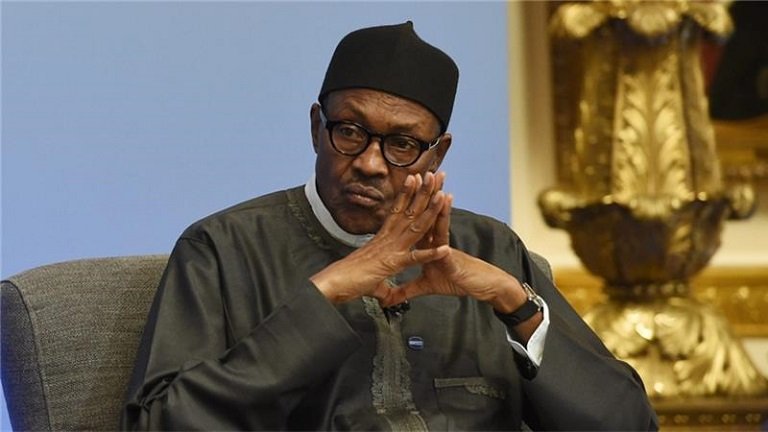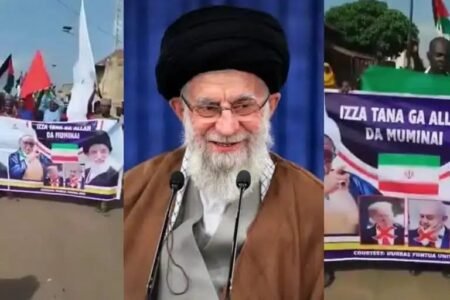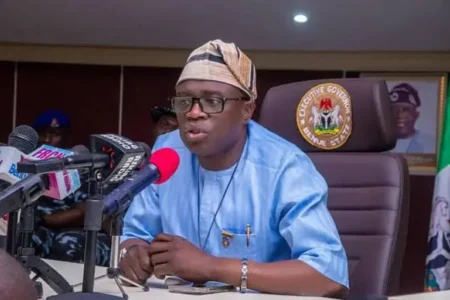The Insight by Lateef Adewole
“Petrol will soon be very cheap.” – Alh. Lai Mohammed
“The prices of food items are coming down.” – Garba Shehu
“We’re the most prosperous black nation in the world.” – President Muhammadu Buhari
These three quoted headlines were from the officials of the present administration including the president. When one hears such, one begins to wonder if the country’s political leadership and the citizens live in the same country as the statements were made at different forums but let’s bear in mind that the captions might have done less justice to the full content of commentaries by each. That’s the “devil’s advocate” in me playing up (lol).
Alh. Lai Muhammed made his statement in Owerri while on the media tour of the Waltersmith Modular Refinery and Petro-Chemical Company Limited, which is due for commissioning next month. He said; “with this kind of refinery, all issues of subsidy become completely irrelevant because we would be able to get fuel at a cheaper price, especially because everything that is being produced will be for local consumption.”
However, that sounds familiar. Many of us can vividly recall how our former ebullient Minister of State for Petroleum, Dr. Ibe Kachukwu went about telling us how it was subsidy that kept down the downstream sector because investors were not comfortable with price control by the government. So, that “wicked” increase of 58 naira per litre from 87 to 145 naira (67%) in 2016 was all we needed to encourage them, create competitive environment which will eventually bring the price down.
Five years down the line, as Yorubas will say: “kaka k’ewe agbon ro, lile l’on le si” (instead of things to get better, they got worse). After five years, instead of the promised crash in petrol price, we are saddled with further increment. Where are the investors? Sadly, Kachikwu is no longer in government to answer for himself. I remember how he also promised to resign if our refineries did not work after few years. He actually never did despite the state of refineries becoming worse than he met them. That’s a Nigerian for you!
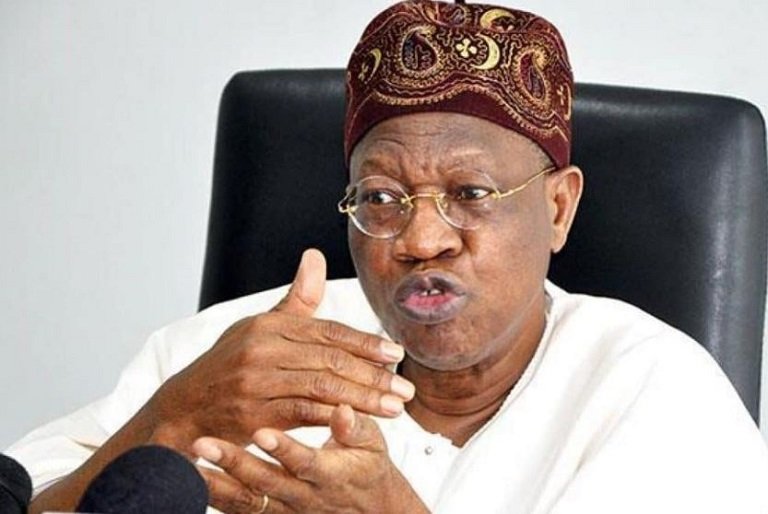
So, the rhetoric from Lai Muhammed is like “déjà vu”, especially as it is coming from him.
Garba Shehu was on Channels Television some days ago where he made his own comment during an interview while trying to defend the directive by Mr. President to CBN to stop giving forex for importation of fertilisers and food items. This is a good decision at its face value but things are yet to translate to impactful results if the current situation we are in Nigeria is anything to go by. By the way, didn’t Nigeria go to “beg” for grains from fellow smaller African country some weeks ago? What was Garba Shehu actually talking about?
But can anyone blame him and his likes? Yorubas will say; “ajogun ewu etu, ko m’oyi agbada nla” (he who lives on inheritance can never know the value of hard work). These people in government, who live on public funds, they feed, get clothed, get medical attention, ride government cars, all paid for from the public coffers, may really not know what the true state of things are and the difficulties that citizens are going through. They don’t buy food or fuel. They pay no electricity bills. Why will they bother about any irrational increase in petrol price or electricity tariffs or the consequences of any draconian policy of government?
As for President Buhari’s comment, it was extracted from the speech he delivered while unveiling the commemorative logo of the Diamond Celebration of Nigeria’s Independence (that one is embroidered in another plagiarism palava). The full address sounded more like a motivational speech than reality.
In truth, that’s who we are supposed to be but “kokoro ko je a gbadun obi t’ogbo” (tooth ache inhibits the enjoyment of a well ripened kola nut). The squander-mania of the leaderships that we have had in Nigeria for decades ruined everything. Whatever prosperity the president must have intended in his speech was by “personal efforts of citizens and their dint of hard work” majorly. He made mention of how Nigerians are doing us proud globally in all fields of endeavour. One would ask; were those achievements through the support of any Nigerian government?
The truth of the matter is, Nigeria and her leaders have done more harms to the citizens than good on many occasions. Otherwise, why would our country men and women prefer to be “slaves” in foreign lands than being “kings and queens” in their fatherland? The tales of Nigerians travelling by road through the difficult terrains of Sahara desert just to get to Europe are told everyday. Worse still, many ended up becoming slaves in fellow less endowed African countries. Many are forced into prostitution.
Last week, I wrote about the recent removal of subsidy by the federal government. There I made a categorical statement about my position on the issue that it is a “necessary evil”. This generated many commentaries and reactions from readers. A friend wrote; “Are you saying Nigerians should just suck it up, move on and adjust to the situation? I hope that is not your recommendation after taking us through history of how the inhuman moves were resisted in the past.”
Many others queried why I should take such a stand which sounded like an approval of the government’s action which many, including me, considered insensitive due to its timing, like I also stated in that article. I had taken that position since 2012 and it has not changed. Not because I did not realise the painful consequences of such but from an informed point of view. I have been part of the downstream industry for two decades. And I know what I am talking about.
In my view, successive governments’ continued keeping of subsidy is fraudulent. In fact, that is usually one of the sources of funds for their political parties through the political party cronies involved in the subsidy racketeering. Over the decades, humongous amount of money has been allocated to it. It runs to tens of trillions of naira. These are funds that could have been deployed to provide other basic infrastructures.
But like the friend of mine said; “you and I know that no one can guarantee a judicious use of any revenue generated by the so called deregulation. Can we?”. Government is notorious for never properly managing anything, hence the lack of trust in their capacity to do so now.
Many other questions also arose about our refineries. I read where the GMD of NNPC, Mele Kyari, said the four Nigerian refineries are comatose because proper Turn Around Maintenance (TAM) has not been done over the years. My reaction was; “what the hell, are you kidding me?” This was because, another useless drain pipe to our scarce resources is the TAM. Yearly, billions of naira are allocated to that activity. We have never gotten any value for it but the money kept being pumped there. Where is the money? No one is in jail for that till date.
Again, there are agencies which are simply feeding fat on the continuous existence of subsidy without adding any or much value. One of them is Petroleum Products Pricing Regulatory Authority (PPPRA). What is their job? Fixing petroleum products prices (as their name implies). Of what value is that? Who fixes yam prices? Who fixes pepper, rice, goats, cows, chicken prices and all? Market forces.
Rather than government to waste money on petrol subsidy which is actually for consumption, and whose value the citizens may not fully enjoy “in the real sense of it” (not sentimental or emotional sense), government should be subsidising production. Through this, employment will be generated. Goods and services will be produced and made available at affordable prices. They will contribute to the economic growth (GDP) and the internally generated revenues (IGR) for the federal and state governments (what they do with it is another kettle of fish).
In my assessment, another agency where big fraud exists in the value chain of downstream is in the Petroleum Equalisation Fund (PEF). And I have argued this in many fora. What does PEF do? It ensures that the petroleum products, now only PMS (petrol), is sold at the same price across the country, irrespective of location. That does not make any sense.
That is why PMS loaded in Lagos or Port Harcourt, in Rivers State is “supposedly” sold in Borno or Sokoto or Abakaliki, many kilometres away, at the same price as where they were loaded. The government or rather the “people form other nearer locations” then pay for the huge freight to transport the products. How does that make any sense? In reality, except when there is execcessive product glut in the market, the petrol are rarely sold at the government’s approved prices in these locations. They are sold at higher prices. So, of what use is the PEF to the ordinary citizens in these locations?
Also, PEF gives room for unwholesome practices. For the lack of capacity and the will to do things properly in Nigeria or sometimes, deliberate laxity to create the lacuna for stealth, how transparent is the fund disbursements to pay PEF to petroleum transporters? How does the agency monitor the actual quantities of petrol that are transported across the country? There is high possibility of transporters making bridging claims for products they did not transport. This is possible with the connivance of unscrupulous staff of the various government monitoring agencies involved. NNPC, DPR, and PEF are all suspects.
An Aquilla Software Tracking System was introduced some years back, just to stem this possibility of fraud in bridging claims by tracking loaded trucks but how effective and efficient has it been? “Nigerian factor” must have prevented it from working properly. The PEF case is worst because, it exists at all times irrespective of the global oil prices which determine what is paid as subsidy. High or low price, the product will be moved from the loading source to distance destinations and transporter will always make bridging claims. So, in any event of sharp practices, it has nothing to do with whether landing cost of petrol is high or low. The fraud in subsidy can only exist when crude oil price shoots up. PEF is constant!
Therefore, it was a pleasant news to me when I read what the current Minister of State for Petroleum, Honourable Timpere Sylva said about plans for outright cancellation of the two agencies; PPPRA and PEF. This he said, was to show how serious the government is about the subsidy removal. How far that is true remains to be seen.
Fortunately or unfortunately (depending on where one stands), the Nigerian Labour Congress (NLC) has given the FG a 14-day ultimatum to reverse their decisions which bother on the petrol subsidy removal and the hike in the electricity tariffs. Failure of which they plan to shut down the country. The ultimatum will elapse by September 28. This might look like “good news” to “non- initiates” (ogberis) in the industry but it is like postponing the doomsday. Subsidy on petrol consumption is not sustainable and does no good to Nigeria economy.
Likewise, I did criticise the hike in the electricity tariffs but paying “service reflective tariffs” are far better than the “cost reflective tariffs” that can happen to the power sector based on the Multi-Year Tariff Order (MYTO) initially embedded in the agreement. In the long run, it will be to the benefits of the country and citizens. The service providers will be compelled to meter the consumers in no time (hopefully). This sector happens to be my primary profession, Electrical and Electronics Engineering, with option in Power. And I happened to have a First-Class Honours in that at the university. So, it is my passion!
Understandably so, the lifestyles of people in government do not give citizens joy at all. While the masses are groaning and dying under the crushing economic conditions, our political leaders live in obscene opulence financed with public funds and yet, have the temerity to tell the people that “there is no money” to provide subsidies for them on petrol or power. Who will believe that?
People see leaders plunge the country into huge debts with little or nothing to show for them. All the revenues being generated yearly continued to be mismanaged. The officials will never propose any disciplinary economic measure that will affect their remunerations and personal emoluments but would rather borrow more or tax the people and businesses to death, just to meet their needs. That is wickedness.
The truth is that, these people came from among the citizens as well. They are not aliens. They are our fathers, mothers, brothers and sisters, sons and daughters, and so on. We are generally indisciplined as a people. We are wasteful. I know for sure that these increases are now teaching us to be more prudent and disciplined. Many no longer drive cars frivolously. People who have prepaid electricity meters now control their energy consumptions due to the higher tariffs. These were alien to our ways of life.
In all, there must be a balance between wanting to be subsidized and the opportunity cost of keeping on doing so. The choice is ours to make. Political leadership at all levels need to do well to also lead by example. They cannot be asking citizens to tighten their belts while their own tummies are growing bigger such that belts can no longer cycle them, to the extent they now wear “babanriga”. Example is better than precept!
May God continue to protect us and guide us aright.
God Bless Nigeria.
Lateef Adewole is a political analyst and social commentator can be reached by email lateefadewole23@gmail.com or via WhatsApp +2348020989095 and @lateef_adewole on Twitter

